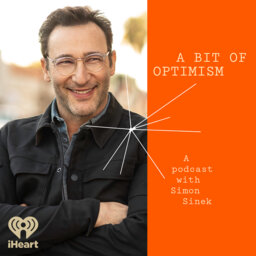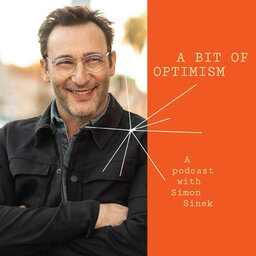A Curious Mind with movie producer Brian Grazer
Authenticity is exceedingly rare.
Yet Brian Grazer embodies it with an unparalleled zest and refreshing innocence.
Though Grazer might not be a household name, his tv shows and movies (like "A Beautiful Mind" and “Apollo 13”) have earned him 242 Emmy nominations and 47 Oscar nominations. He believes in the power of asking endless amounts of questions to shape stories that resonate on a deeply human level.
Grazer is an unparalleled storyteller and offers a unique perspective on how to engage, question, and understand the world around us.
This is…A Bit of Optimism.
For more on Brian and his work check out:
His new book: https://www.amazon.com/Curious-Mind-Expanded-Secret-Bigger/dp/1668025507
https://imagine-entertainment.com/
https://www.simonandschuster.com/authors/Brian-Grazer/410161296
In 1 playlist(s)
A Bit of Optimism
The future is always bright...if you know where to look. Join me each week for A Bit of Optimism - …Social links
Follow podcast
Recent clips

Revisited: We Cannot Heal Alone In The Loneliness Epidemic with Rabbi Sharon Brous
34:12

Confident Ignorance with rapper, novelist, and filmmaker Logic
1:00:19

Wealth Is Togetherness with community organizer Kennedy Odede
37:11
 A Bit of Optimism
A Bit of Optimism